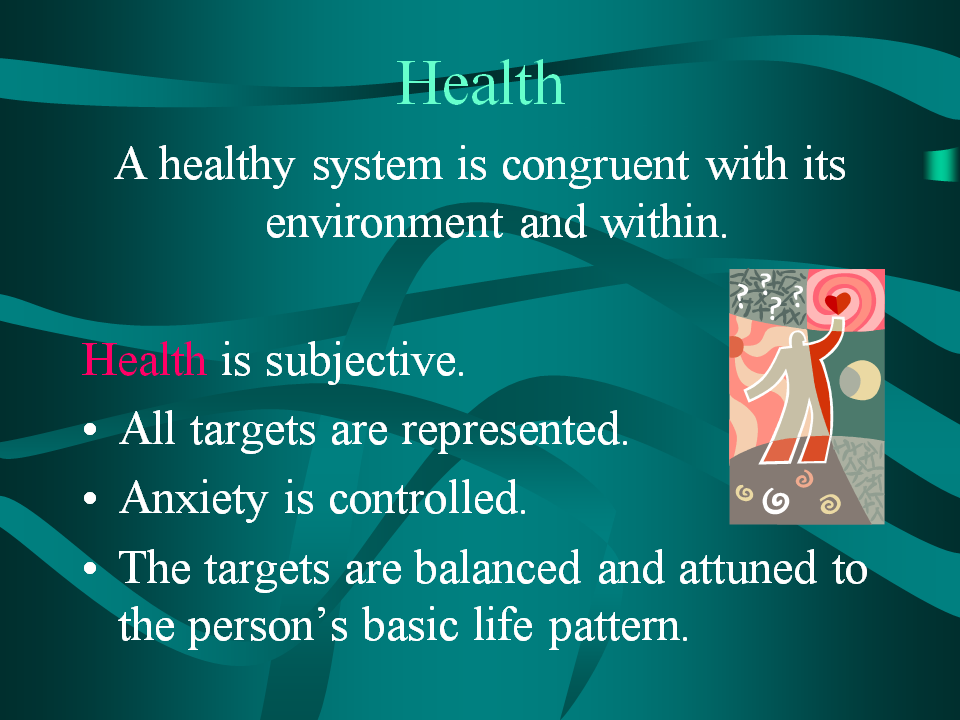- Health
Propositions - Health
- Health is the experience of system congruence evidenced on all levels of an individual's system, the subsystems, and the environmental systems of contact.
- Health is not an absolute. It is never totally absent and never fully present.
- Physical disease is a condition that refers to the organizational disturbance at the organic system level.
- Physical disease and poor health are not synonymous and neither are lack of physical disease and good health.
- Physical disease may mirror an incongruence of life patterns with the order of the universe. It can lead to health if it reveals to the person the path toward congruence.
- The crucial determinant of a deficiency in health is anxiety that results from system incongruence, whereas well-being is a sign of high-level health (Friedemann, 1995, pp. 14-150).
The Framework of Systemic Organization takes a contrasting view to the medical model. According to the medical profession, disease signifies pathology and illness refers to unpleasant manifestations of a disease that require medical treatment. In contrast, intervention with this framework implies attention to the congruence of the system, to its systemic patterns that aim at congruence and its exchanges with other systems, in order to reduce the level of anxiety.
 |
Health is congruence experienced within the system and between the system and its environment. As such, it is never fully achieved. Optimal health is the result of a balanced systemic life process and is a highly subjective personal experience. |

 English
English  Español/Portugués
Español/Portugués  Deutsch
Deutsch 